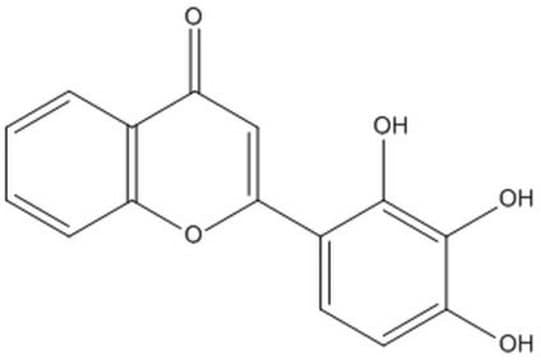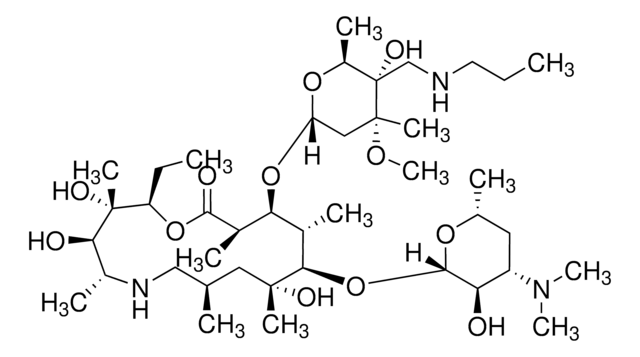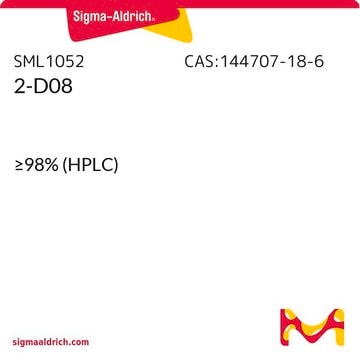75741
Ginkgolic acid C15:1
analytical standard
Sinonimo/i:
6-[(8Z)-Pentadecenyl]-salicylic acid, Ginkgolic acid I
About This Item
Prodotti consigliati
Grado
analytical standard
Livello qualitativo
Saggio
≥80% (HPLC)
Durata
limited shelf life, expiry date on the label
tecniche
HPLC: suitable
gas chromatography (GC): suitable
applicazioni
food and beverages
Formato
neat
Temperatura di conservazione
2-8°C
Stringa SMILE
CCCCCC\C=C/CCCCCCCc1cccc(O)c1C(O)=O
InChI
1S/C22H34O3/c1-2-3-4-5-6-7-8-9-10-11-12-13-14-16-19-17-15-18-20(23)21(19)22(24)25/h7-8,15,17-18,23H,2-6,9-14,16H2,1H3,(H,24,25)/b8-7-
YXHVCZZLWZYHSA-FPLPWBNLSA-N
Cerchi prodotti simili? Visita Guida al confronto tra prodotti
Descrizione generale
Applicazioni
Ginkgolic acid C15:1 may be used as an analytical reference standard for the quantification of the analyte in Ginkgo biloba plant extracts, and dietary supplements using chromatography techniques.
Avvertenze
Warning
Indicazioni di pericolo
Consigli di prudenza
Classi di pericolo
Aquatic Chronic 4 - Skin Sens. 1
Codice della classe di stoccaggio
11 - Combustible Solids
Classe di pericolosità dell'acqua (WGK)
WGK 3
Punto d’infiammabilità (°F)
509.9 °F - (calculated)
Punto d’infiammabilità (°C)
265.5 °C - (calculated)
Dispositivi di protezione individuale
dust mask type N95 (US), Eyeshields, Gloves
Choose from one of the most recent versions:
Possiedi già questo prodotto?
I documenti relativi ai prodotti acquistati recentemente sono disponibili nell’Archivio dei documenti.
I clienti hanno visto anche
Il team dei nostri ricercatori vanta grande esperienza in tutte le aree della ricerca quali Life Science, scienza dei materiali, sintesi chimica, cromatografia, discipline analitiche, ecc..
Contatta l'Assistenza Tecnica.












